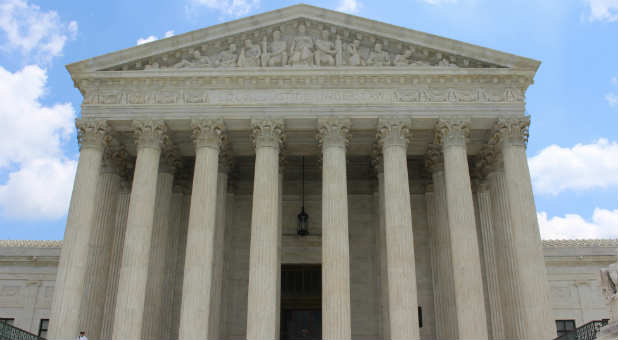4 Surprising Facts About Supreme Court Case Defending California Pregnancy Centers
It seems pro-life viewpoints are not welcome in California.
The state government made that clear when it passed the Reproductive FACT Act. The law forces pro-life pregnancy centers to speak a message that directly contradicts their beliefs and mission.
At no charge, pro-life California pregnancy centers provide women and babies with important resources such as diapers, childbirth education, maternity clothing, baby blankets, layettes, diapers, baby wipes, emotional support groups, Bible studies, adoption resources, parenting classes, information on sexually transmitted diseases, information on natural family planning and healthy family support. In addition to these resources, medical pregnancy centers also provide pregnancy testing, prenatal vitamins, ultrasound examinations, medical referrals, STD testing, and health provider consultation.
Despite this great work, this law forces medically licensed pregnancy centers to post signs advertising that the state offers free or low-cost abortions. Not only that, but the signs must also include a phone number where women can call to get referrals for abortion providers like Planned Parenthood. The law also requires non-medically licensed pregnancy centers to post a disclaimer in their centers and their advertising that they are not a medical facility—in up to 13 different languages. This requirement makes it virtually impossible for them to advertise their services.
Alliance Defending Freedom is representing the National Institute of Family and Life Advocates before the Supreme Court this spring, and we filed our opening brief with the court on Monday.
Here are a few facts about the case that might surprise you:
1. The California law in question specifically targets pro-life pregnancy centers.
The Act’s sponsor called the beliefs of these pro-life pregnancy centers “unfortunate” because they “aim to discourage and prevent women from seeking abortions.” Conveniently, the language of the act makes it so that this law narrowly applies to the centers that hold a pro-life viewpoint, and it exempts pro-abortion centers.
2. Under the law, these pregnancy centers face steep financial penalties if they don’t comply.
Posting signs that advertise the very practice these pregnancy centers are seeking to end directly contradicts their mission. But if they refuse to post those signs, the consequences are significant. For the first offense, a pregnancy center faces a $500 fine. And for every offense after that, the fine is $1,000. Perhaps organizations like Planned Parenthood—which bring in significant profit from abortions and taxpayer funding—could afford such a fine. But these nonprofit pregnancy centers face the choice of speaking a message that undermines their mission, or threatening their organizations’ ability to exist.
3. The Supreme Court has previously ruled that the government cannot compel speech.
In the Supreme Court case Riley v. National Federation of the Blind of North Carolina, the Court ruled that the government “may not substitute its judgment as to how best to speak for that of speakers and listeners; free and robust debate cannot thrive if directed by the government.” The First Amendment, the Court noted, “presume[s] that speakers, not the government, know best both what they want to say and how to say it.” Yet, this California law allows the government to dictate what these pro-life pregnancy centers say, how they say it, and when they say it.
4. Pro-abortion groups worked behind the scenes to get this law passed.
If you were to look at the sponsors and supporters of the Reproductive FACT Act, you would see some familiar names. Abortion advocates such as NARAL Pro-Choice California and Planned Parenthood publicly supported the legislation.
How the Supreme Court rules in this case could have major implications for free speech in this country. The government should never force anyone to speak a message with which they disagree. {eoa}
This article originally appeared at adflegal.org.














































